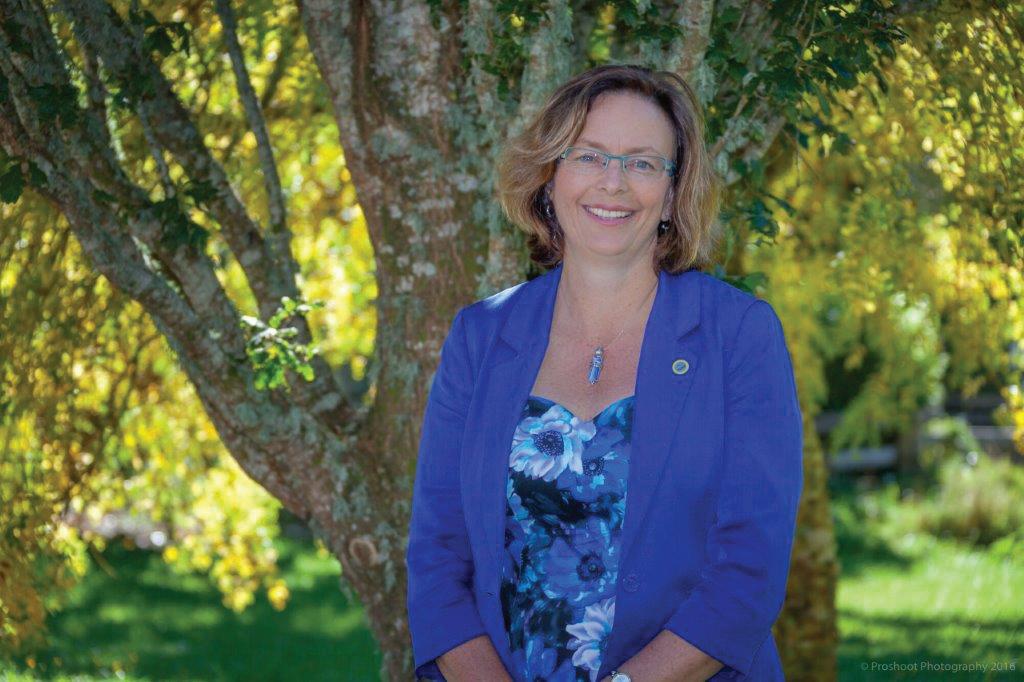
8 minute read
CONTENTS
Manufacturing forum highlights key issues
By Rebecca Reed
Advertisement
Disruptive international supply lines, a lack of skilled and semi-skilled workers, more in-market support and robust long term planning are some of the key areas Government needs to tackle urgently, according to manufacturing and technology sector representatives. The call comes after the Hutt Valley Chamber of Commerce hosted the country’s first Manufacturing and Technology Forum which focused on the Covid-19 recovery as part of the 2020 Wellington Business Expo in mid-October.
The forum, in partnership with WellingtonNZ, brought together manufacturing and technology sector representatives from across the Wellington region to share their views, and also hear from Hon. Grant Robertson who listened to what the sector needed to rebuild the economy. The Hutt Valley Chamber of Commerce is now in the process of finalising a report with recommendations and using this to advocate for this sector. The key issues raised from the forum will be shared with ministers as well as numerous relevant Government departments and community leaders.
Develop a long term plan for the sector
Helen Down, Chief Executive of Hutt Valley Chamber of Commerce says the New Zealand manufacturing and technology sector is central to the COVID-19 recovery and underpins our next generation economy.

“The role our manufacturers will need to play in rebuilding our economy in this new era is vital. This is why it is imperative the Government considers a long term plan not just short term packages as an immediate response. While Government policies have provided short term relief, Covid is going to impact us for many years with the true recovery expected to take us well into the 2020s. This is an opportunity to reset our economy. “The government needs to recognise the length of time it is going to take to recover and give our manufacturers confidence to invest by developing a long term support programme,” said Down.
Government in-market support crucial
Manufacturers and technology companies are facing major challenges tapping into their export markets and it will only get harder as we head into 2021, according to Down. “Our exporters are finding it increasingly difficult to sell their products because they can’t just get on a plane and meet with their market face to face. International travel has become so restrictive and expensive with all the rules around quarantine so Government could be providing in-market support and resources to help manufacturers bridge that gap. “This could happen through NZTE developing new services in those export markets and utilising staff to represent New Zealand more than they have in the past.” Chief Executive of NZ Tube Mills, Terry Carter, says they have discovered that brand New Zealand is a huge selling point overseas. “Globally, New Zealand is an attractive supplier and our status of being virtually Covid-free is a huge opportunity for us. Our steel is made from iron sand in NZ and our products are made here. All of our subcontractors are local so when we come to sell our horticulture product to overseas markets we can proudly say it is of New Zealand origin.” However Carter is quick to point out the outlook for tapping into these overseas markets is looking grim because they can’t get to the markets physically. “We have a guy in California who is restricted with travel due to lockdown in various states which has created huge difficulties. Because the nature of our business is very seasonal we were hoping to gain off season work in the Northern Hemisphere but that is not looking promising. We are working with NZTE when we can but they have a helicopter view – we need to get in front of our potential customers and NZTE just doesn’t operate at that level. What we need is more funding and support from Government to use an international business that has more specific in-market knowledge and is able to knock on doors once they have our brief.” Carter says the Government also needs to make it easier to access to those funds for in-market agents.
Tackle international supply line issues
Manufacturers are also urging the government to rally the international shipping lines to get more capacity for goods in and out of the country. Shane Lowe, National Sales Manager of freight forwarding company 360 Logistics says the supply chain is only going to get more disrupted in 2021. “A lot of people are complaining about the lack of containers coming into New Zealand with supplies but it’s only going to get worse for our export market because if you don’t have the containers coming in, you can’t send out goods quick enough. Up until now the focus has been on the issues around imports, however, from what we are experiencing exports are going to be hit really hard in 2021 as capacity with ship and container space tightens up.” He says during lockdown the shipping companies reduced capacity by 15% which equated to 8,000 less containers a week. “These companies thought manufacturing would slow down so international goods would be moving less about the world but demand has only skyrocketed with people buying consumer goods in replace of travelling. A lack of container stocks and space into New Zealand has been an issue for the past 3 months and it’s getting worse –we are starting to see this on the export front. Half a dozen major shipping lines are taking no more bookings into Australia until January 2021 or further notice. Lowe says this has all come at a hefty price tag with shipping lines putting up their rates drastically with increases every week. “To add insult to injury as financial quarters get closed off it will be clear that shipping lines have used removing capacity not because there is not the demand but to artificially push pricing up.”
Build and maintain a better skilled workforce
Compounding the impact of stressed supply lines, access to a skilled workforce is also starting to bite. “People are our greatest asset yet New Zealand has not future-proofed itself in how to build and maintain a skilled and semi-skilled workforce,” said General Manager of Stratmore Construction Solutions, Adrian Woodliffe.
“As a nation, our thinking has been short-term, and it has come home to roost with the pandemic as many gaps in the skill-set landscape for many sectors (construction is a prime example) are exposed. Industry is struggling to get appropriate people and we can’t keep going like this,” he said. Woodliffe says while the Government has stabilised the border it now needs to consider longer term management. He says there have been murmurings from the construction sector, for example, that they would seriously consider having their own quarantine facility to ensure that key, highly skilled staff are available. “The current border controls, while understood, make it difficult for those skilled people who fled to their home countries (e.g. Australia, South Africa, Europe, SE Asia) as the pandemic impacted to return to the projects that they were engaged with. This dilemma is not going to go away anytime soon and will have a long tail unless Government works with the sectors most impacted to resolve the matter .”
EMA Spring Briefings very well supported
New Zealand border issues, skills and staff shortages and new rules around compulsory Christmas shut-downs dominated discussions during the EMA’s recently completed Spring Briefing round.
More than 1700 EMA members joined the briefings with record numbers in venues such as Tauranga, Whakatane and Hamilton.
“It was clear members were looking for some direction and certainty from the new Government and they were also keen to get face-to-face with fellow business people and our EMA team,” says the EMA’s Head of Advocacy and Strategy, Alan McDonald. “Many of the questions and comments focused on the huge levels of frustration at trying to get people through the border and quarantine system. Skills shortages were a real issue for many of our members across multiple sectors before Covid-19 hit and the Covid-19 crisis has only brought those shortages into sharper relief. “The government’s view that these roles will be filled by either returning or unemployed Kiwis is simply not happening as businesses still struggle to fill roles from the basic to the big end of a business.
“Better border and quarantine facility management is an urgent priority for our members and businesses across the country if we are going to make the recovery and transition necessary to restore and enhance our economy for the well-being of all New Zealanders,” he says. The EMA’s Head of Legal and General Counsel, Matthew Dearing, said the new rulings on compulsory shut-downs over the traditional Christmas break were also causing significant concerns and confusion.
“The way this has been treated in the past is no longer relevant and the new rulings create a level of complexity that many businesses are struggling to understand. The policy pack we’ve developed continues to be picked up by our members and non-members to help manage the issue as the Christmas season rapidly approaches,” he says. Improving productivity, infrastructure development and recent changes to the Privacy Act were other topics frequently raised by members, and concern was expressed at the potential raft of employment legislation including more sick leave, new public holidays and minimum and living wage increases adding costs to business at a time when they can least afford it. The EMA holds three rounds of Briefings a year to share economic, policy and legal information updates with members. The Summer Briefings begin in February.
DEUTSCH HD30 & HDP20 CONNECTOR SERIES


Designed specifically for the truck, bus, and off-highway industry, heavy duty, environmentally sealed, multipin circular connectors. contact sizes 4 through 20.









